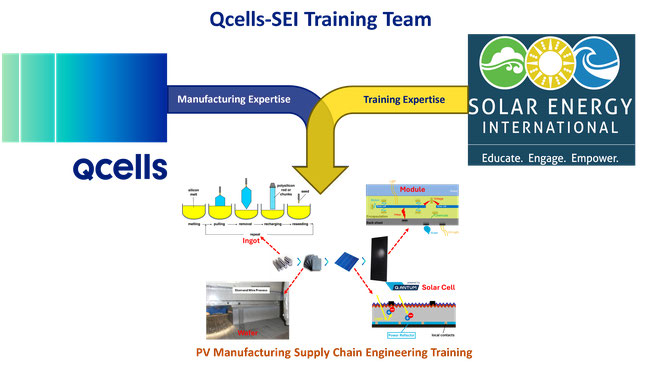Fereshteh Farzad, Director of R&D Business Development, Qcells,
feri.farzad@qcells.com, 9145257208, Briarcliff, NY,
https://www.linkedin.com/in/fereshteh-farzad-phd-pmp-71266622Nishul Arora, Senior Engineer, Qcells,
nishul.arora@qcells.com, 8505249822, Atlanta, GA,
https://www.linkedin.com/in/nishul/Mary Babb Isarov, Program Manager-R&D Externals, Qcells,
marybabb.isarov@qcells.com, 4045424206, Youngsville, NC,
http://linkedin.com/in/mbisarovWendy Knapp, VP Curriculum and Instruction, SEI,
wendy@solarenergy.org, 970-527-7657x103, Charleston, South Carolina,
https://www.linkedin.com/in/wendymknapp/Kris Sutton, Director of International Business Development and Instructor, SEI,
Kris.sutton@solarenergy.org, 510-551-5339, Paonia, Colorado,
https://www.linkedin.com/in/kristopher-sutton-98475080/Meagan Coomes, Instructional Designer, SEI,
meagan@solarenergy.org, 970-527-7657, Lexington, Kentucky,
https://www.linkedin.com/in/meagan-coomes1/Alex Jahp, Curriculum Developer and Instructor, SEI,
alex@solarenergy.org, 970.527.7657x204, Salt Lake City, Utah,
https://www.linkedin.com/in/alexjahp/Kiera Coughlan, Development and Empowerment Program Manager, SEI,
kiera@solarenergy.org, 970-527-7657x106, Flagstaff, Arizona,
https://www.linkedin.com/in/kiera-coughlan/Denise Massart, VP Administrative Services and Finance, SEI,
denise@solarenergy.org, 970-527-7657x210, Paonia, Colorado,
https://www.linkedin.com/in/denise-massart-isaacson-4100479/
